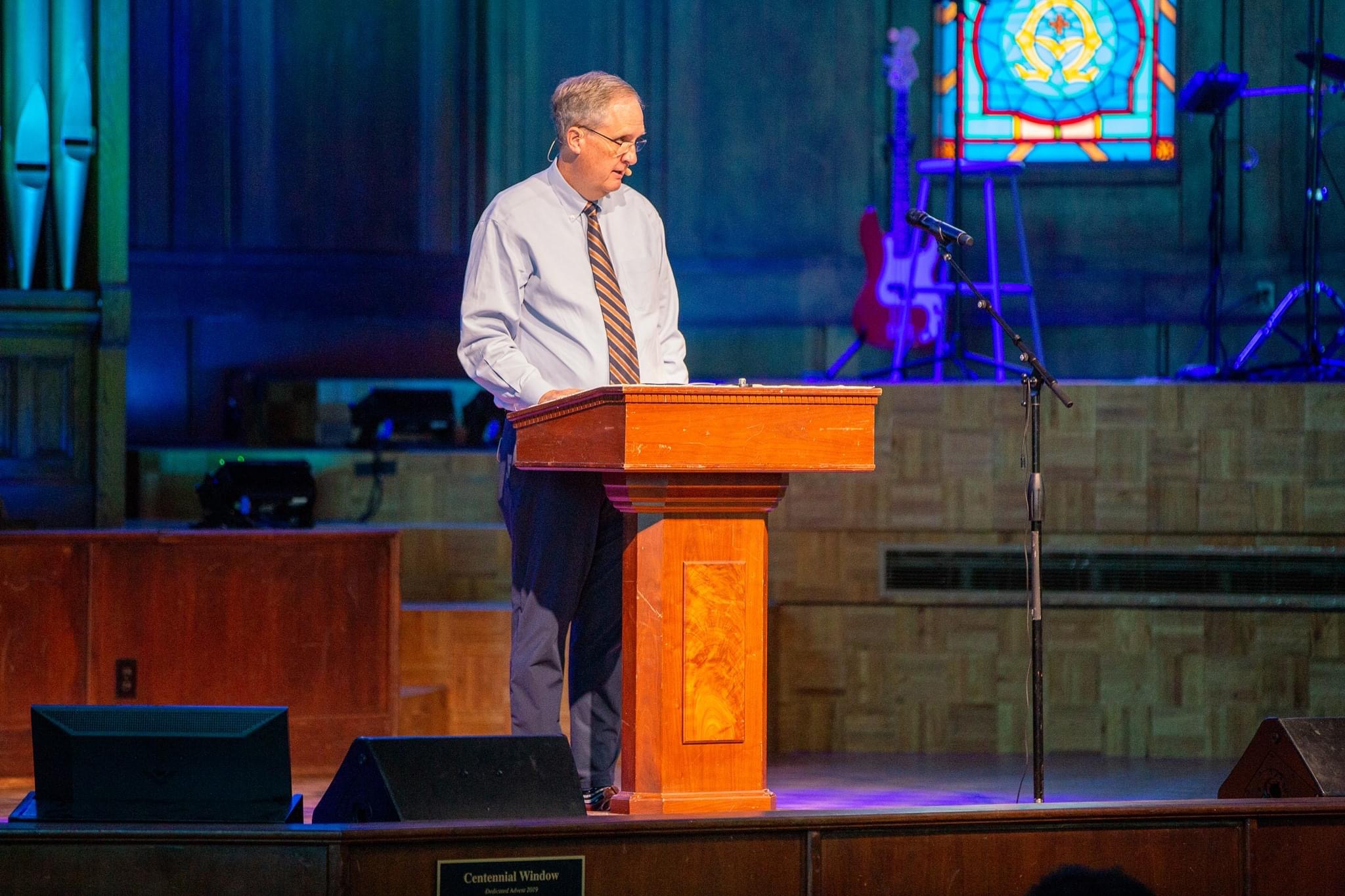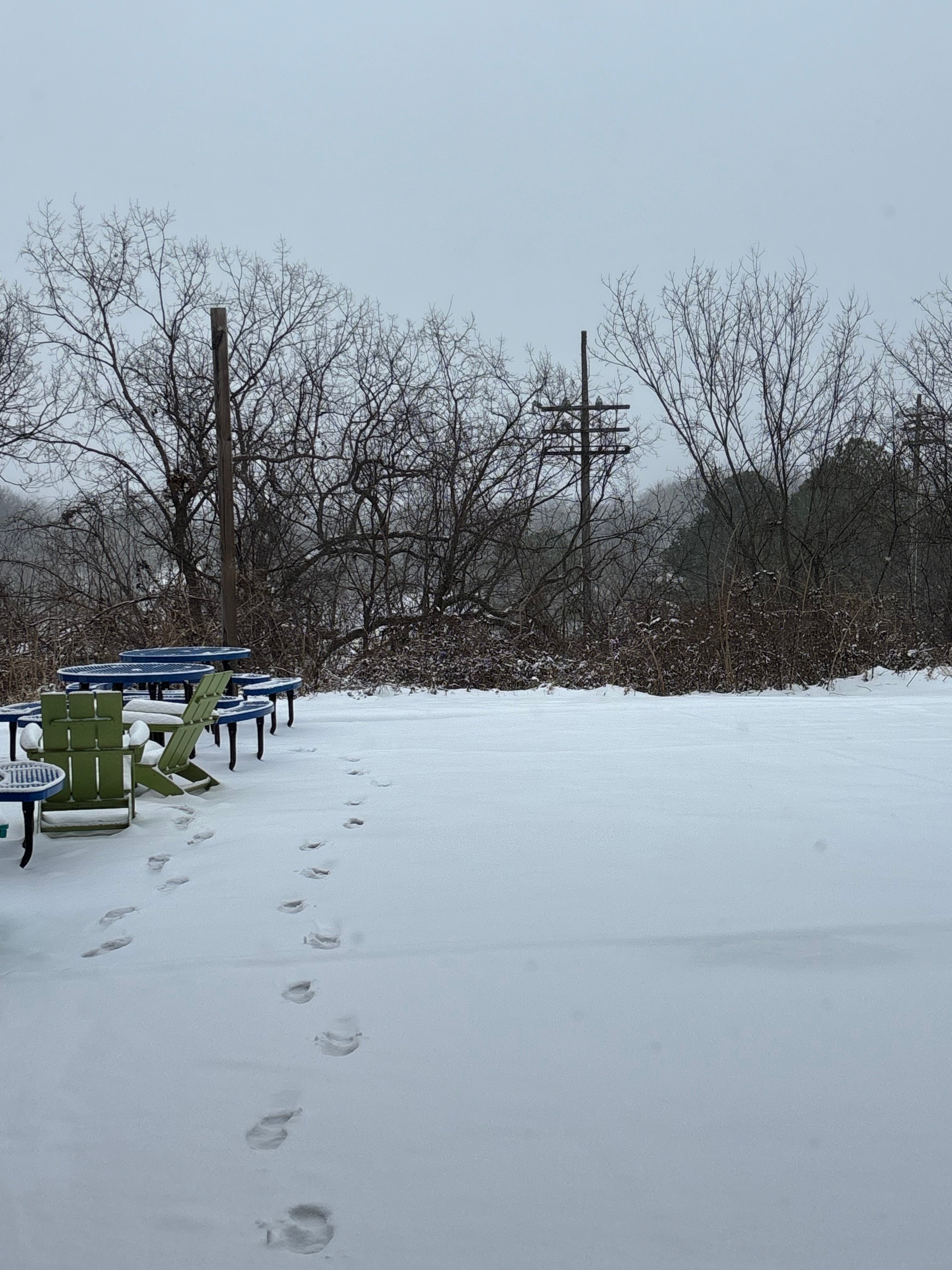![]()
On April 19th, John Brown University President Chip Pollard led a special “Question and Answer” chapel service. The student body was invited to ask anything of the president, whether anonymously through an online forum or in person with a microphone in hand. The service began with Pollard announcing general JBU updates, including renovations, construction plans and an admirable list of recent student and faculty accomplishments. Many of the questions were lighthearted and presented in a joking manner, asking Pollard about his favorite dog breed, whether he listens to rapper Kendrick Lamar and if he had any good book recommendations as of late. One anonymous submission even included a story including “Chippy P” and Scooby-Doo. Others were heavier in nature, interrogating the recent STEM leanings of the college and the cultural intelligence of the faculty and staff, with some putting Pollard’s theological background to the test. Curious students inquired regarding the nature of the return of Christ, religious exclusivity and salvation versus sanctification.
The chapel service also served as a platform for hot-button issues amid the student body. Chief of these was the discussion of what it means to be LGBTQ+ at JBU and how the university will respond to this growing student population. One unnamed student identified that attitudes towards homosexuality are becoming a denominational difference in the church, going on to ask why JBU, an interdenominational school, has not changed the Covenant in response. Others were curious to know whether JBU would update its policy as well. Some wondered how they could do a better job at loving this community on campus in the face of current legislation. Pollard began his answer with a clear assertion of JBU’s core values. The president said, “I stop all of this conversation by repeating JBU’s position. So, we believe firmly, with deep conviction, that human sexuality is reserved for one man and one woman in the covenant of marriage. And we believe God has created male and female. All that being said, we also know that sin affects every aspect of our lives and there’s brokenness that can happen within your understanding of your gender or your sexuality.”
However, Pollard was clear to reiterate that JBU does not require its student body to agree with all its theological positions. “I think it’s important for everybody to remember we do not require students to be Christian, necessarily, to be here,” he said. “They can disagree with all sorts of our policies. They can disagree on things like the deity of Christ … students can disagree with our ideas on homosexuality, and students have. Now, we don’t necessarily have a platform for people to disagree with our fundamental theological convictions. But we also don’t necessarily discipline people because they have a different view on some issues. We ask for all students to live by the Community Covenant.” The president also was sure to encourage the student body in improving its walk with the LGBTQ+ community, acknowledging the difficulty of queer students in discussing their identities with their peers.
Pollard also discussed his 13 year experience with the CCCU, the Council for Christian Colleges and Universities, and the Fairness for All act. In his words, the act dictated that “we must extend civil rights to LGBT people. But at the same time, it allows religious organizations to organize their missions based on their religious convictions. It’s the same thing as almost every civil rights act that’s been passed, but there are ways in which we can engage with the public sphere where we don’t compromise what I understand to be our vision, while at the same time reaching out and trying to have a policy that is peaceful that allows them.” Once again, he invited disagreement even from Christian students and requested that this topic be discussed with love and respect. As for the JBU policy regarding homosexuality, the president said, “I don’t actually think that JBU is going to change its position on this. I think even as the culture starts to change, even as some of the church starts to change, we have always seen ourselves as not just interdenominational, but interdenominational in the evangelical stance. The church has been pretty consistent for 2,000 years in its understanding of sexuality and marriage.” Ultimately, he expressed a hope for “stability amongst folks in these conversations.”
During the in-person question session, one student asked Pollard about his thoughts on LGBTQ+ solidarity on campus, or even the formation of an activist group. The inquirer stated that he chose to ask this question because of his familiarity with previous underground groups. The student referenced a story from an article he had read in The Threefold Advocate, in which, allegedly, Pollard and former chaplain Rod Reed attended one of the student gatherings and turned the session into a Bible study. The president was quick to deny the account of the story. “Thanks for asking, because that is just not true. So, we had groups for supporting these students for a while. We haven’t had as much since the pandemic. They were not Bible studies. There were times that a few students would come and talk about their Christian faith and their sexuality … I came when I was invited, only once or twice. And again, this is four or five years ago. And what I heard from students at that time was, ‘I really appreciate this group because it’s the only place where I can talk about my Christianity and …’” Pollard readjusted his terminology from “struggle,” continuing, “‘and my question about my sexuality, which is an important question about my identity.’”
Amidst the myriad of information provided by Pollard in the chapel session, one fact has been made clear: JBU stands firm in its convictions regarding heterosexual marriage and the gender binary, likely never to change. Yet another unchanging fact is the number of LGBTQ+ students who currently attend and will continue to attend JBU. While discussion continues across campus concerning how best to receive and interact with this community, its members are left to define themselves within the narrow confines of their allotted existence.





